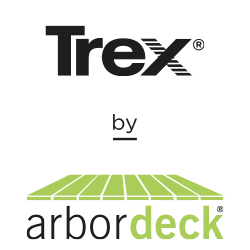How to choose a Professional Decking Installer
How to choose a Professional Decking Installer
Choose a professional decking installer
Choosing a professional decking installer is vital to the success of your new deck and one that protects your investment. Professional decking installers are specialists in exactly that, they only concern themselves with decking. Some Landscaping companies specialise in decking design and installation too. You’ll see some manufacturers run professional installers courses where contractors are trained to the manufacturers standard for specific materials.
Often some “Pro” installers only use one manufacturer, whilst some install all decking materials from all manufacturers. Their offering may include softwood, hardwood, modified and composite decking materials.
Your professional decking installer should, at the very least, have the following:
- A website with a portfolio of their own work.
- Have a registered business.
- Have public and employers’ liability insurance
Even better if they also have the following:
- Professional Association membership such as the APL (Association of Professional Landscapers)
- Professional training, there are Landscaping Training Academy’s for such.
- Be part of a “Pro” scheme by a manufacturer.
- Prove understanding of EN 1995-1-1: Design of Timber Structures to EuroCode 5.
- Prove understanding of BS5268-7.1 for timber structures.
Investing in your decking
You will certainly be using, or at least seeing, your decking most days of the week. It should make you happy each and every time you use it. It should also be something that shouldn’t rot and last at least 15 years (Unless warranted for more).
There are some composite materials that are warranted for 25 years. Why compromise on a “cheap” substructure that will last for far less… It is best to get your decking substructure designed to meet the longevity or warranty of your decking.
Trex® and Millboard® are the market leaders for composite decking in the UK.
Accoya® and Kebony® are the leading Modified timber decking manufacturers which carry 50 years and 30 years respectively. These products are best fitted with the Grad® System
Hardwoods are expensive and becoming less popular due to their environmental impact. There’s no such thing as cheap hardwood because they cost less for a reason…
Softwoods are perfect for a decking platform, do be sure to ask for a minimum UC3 (Use Class) treatment in accordance with BS8417. This is because the service life should serve 30 years for the timbers, not in contact with the ground, if the timber is in contact with or physically “IN” the ground it should be treated to UC4.
To protect your investment, you should consider HDPE (Plastic), steel or concrete posts because these will never rot…
Who should you trust to build your deck?
Qualified, experienced, insured and proven track record with portfolio. Qualifications may be experience-based.
“Your Local installer”
Start by searching for your local installer, if they are local their overheads will be lower than someone further away. You can assess their experience by how many projects they have in their portfolio.
“Do they state their insurance and what it covers?”
Take a look at their feedback from genuine sources. There are many online “rate my contractor” style sites that purport the checking of tradespersons … We certainly wouldn’t recommend these!
The only genuine feedback is from Associations or certain manufacturers. If you look at TREX® for example, to get feedback, the contractor has to submit a project and Trex contact the client directly… you can’t get any more genuine than this.
What Association are they a professional member of? it’s certainly worth the question. If they are members of the Association of Professional Landscapers (APL) they are actually vetted on-site by a real person from a third-party source and are the only Landscaping association to do so. They also require no less than 6 recommendations from previous clients spanning at least 2 years… It’s not easy to become a member so you should hold this in high regard when choosing your Pro installer.
The APL has a 15-year code of practice guide specification for decking construction. Further, this is used in the Landscaping Academy’s and is being adopted by World Skills UK.
Your quotation, what should it include?
Your quotation makes up a small element of your CDM 2015 paperwork package. The quotation should be broken down into a language that you understand. It should state and include:
- Reference dimensions or refer to a drawing
- State materials used for the decking, structure, fixings, post supports and balustrade is required
- State the performance of the structure, how much weight of people can it support. This is usually in kN/sq. m (1.5kN for domestic and at least 4kN for commercial)
- Quality of installation, such as butt joints or mitres for corners, specialist detail, sanding and oiling. If countersunk holes are expected then this should be listed too.
- How long the quotation is valid for
- Preliminary costs, to include, H&S documentation, skips, power, plant, site toilet etc.
- If there is excavation, it should state what depth and volumes of waste to be removed.
- It should state how additional works are documented.
- The payment schedule, date and amounts should be listed.
- Approximate duration onsite
- It should state details of the warranty
- It should refer to a specification and also a contract. These should be produced when the quotation is excepted.
If there is nothing written down then there is very little you have as protection if the contractor builds you something that doesn’t meet your expectations.
Is your contractor insured?
You should ask for a copy of the insurance and read it. Most insurance comes with conditions. Public and Employers liability insurance is the minimum for all contractors. If your contractor is also the decking designer they should have Professional indemnity insurance.
What questions should I ask my contractor?
Having read this guide on how to choose a professional decking installer you should gather your questions from the information above.
Your decking is an investment that you will rely upon for years. Choose a contractor to build you something you can look back on in 10 years and be satisfied with your choice.
Decking gone wrong?
Leave a comment Cancel reply
You must be logged in to post a comment.
1 thought on “How to choose a Professional Decking Installer”
Categories
Archives
Recent Posts
- Composite decking ideas in New Malden June 29, 2024
- Tips and Ideas for your new deck April 28, 2024
- Trex designer decking in Catworth, Cambridgeshire April 24, 2024
- Sustainable decking for Royal Opera House April 2, 2024
- Trex Signature sets new standard for outdoor living April 1, 2024




What a great guide on choosing a pro decking installer. Building a deck is a significant investment, and it’s crucial to find the right expert to make your dream a reality. I couldn’t agree more with the emphasis on qualifications, insurance, and genuine feedback. One thing I would add is to ask the installer about their approach to sustainability. In today’s world, eco-friendly choices are essential, so inquire about their use of sustainable materials and environmentally-conscious practices. This way, you’ll not only have a stunning deck but also contribute to a greener future. Happy decking!
Thanks,
Matt